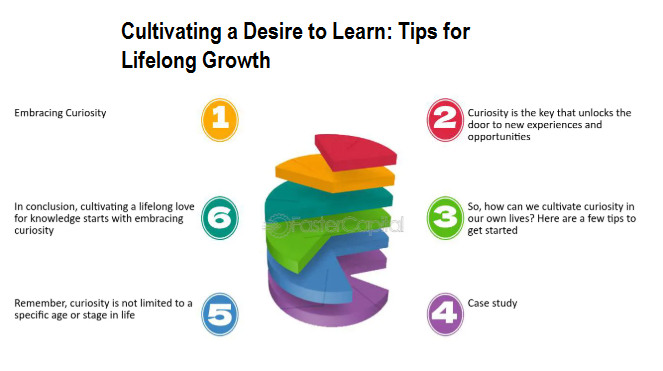Introduction
The desire to learn is a strong force driving individual and proficient development. It goes further than formal education and contains a lifelong dedication to achieving understanding, honing talents, and originating new capabilities. However, Cultivating this passion is important for anyone examining to remain flexible, informed, and fulfilled. Whether in school, tackling a career, or joining retirement, the desire to understand can help you guide challenges, extend your horizons, and construct a meaningful, successful fortune. This article will deliver practical suggestions for encouraging a lifelong passion for education.

Understanding the Importance of a Growth Mindset
A growth perspective is the footing of lifelong knowledge. This vision of desire to learn, designed by psychologist Carol Dweck, revolves around the opinion that capabilities and intelligence can be acquired over time through hard work, commitment, and learning from blunders. People with a growth perspective view challenges as improvement possibilities rather than barriers. However, this mindset promotes strength, stimulates interest, and encourages learning as an ongoing process. Cultivating a growth mindset is essential for anyone looking to foster a desire to learn, as it helps individuals embrace challenges, keep motivation in the face of setbacks, and continue growing even when the learning angle is vertical. Assume the idea that losses are not lapses but footing stones to enhance. Concentrating on progress, not perfection makes you more inclined to stay curious and engaged in learning.
Setting Achievable Goals and Pursuing New Interests
One useful way to acquire a wish to learn is by specifying clear, attainable goals. These purposes deliver direction and purpose, making the learning process more interesting and rewarding. Whether seeking to discover a new language, create a technical skill, or research a new field of knowledge, breaking down your larger purposes into smaller, effortless tasks makes the journey feel less overwhelming and more achievable. Additionally, following new interests outside your comfort zone can reinvigorate your passion for learning. However, it’s easy to become attached to a routine, concentrating exclusively on responsibilities or regular subjects. However, investigating new areas—photography, coding, or philosophy—can kindle excitement and curiosity of desire to learn. Learning something new challenges your brain, sharpens cognitive functions, and enlarges your perspective.
Adopting Effective Learning Habits
Adopting valuable learning practices is important to maintaining a passion for learning. One such pattern is consistent reading. Reading widens your learning base, sharpens your crucial thinking skills, and reveals you to various viewpoints. However, reading a routine constantly floats new ideas and information. Whether reading books, articles, or research papers, routing information helps preserve an ongoing academic curiosity. In addition to reading, setting aside devoted time for learning can help you stay on route. Schedule regular blocks to grow your knowledge as you schedule meetings or social occasions. Consistency is key in promoting a love for learning, as it makes a sense of performance and responsibility of desire to learn. Another effective learning habit is to rehearse active employment. Active learning heightens understanding and improves retention, making the process more significant and satisfying of desire to learn.

Conclusion
In conclusion, developing a passion for learning is an endless process requiring commitment, curiosity, and the readiness to step outside your comfort zone. By adopting a growth mindset, setting achievable objectives, studying new interests, and assuming effective learning habits, you can encourage a passion for learning that lasts a lifetime. However, the world is continuously changing, and the more we learn, the more prepared we become to adjust to those changes. Promoting a lifelong love of learning improves personal development, happiness, and satisfaction. The learning journey never truly finishes; it’s a straight path that suggests endless possibilities for development and discovery of desire to learn.